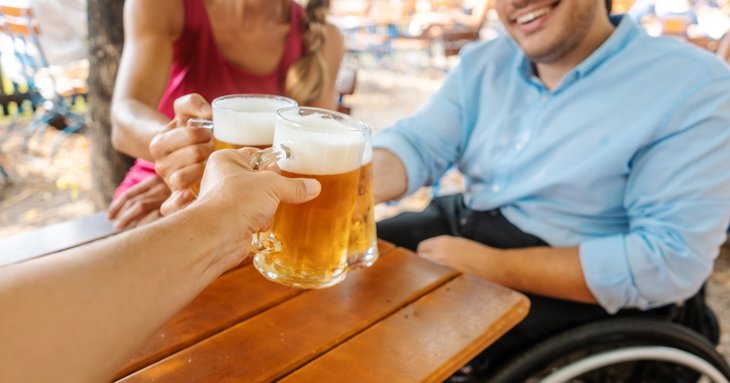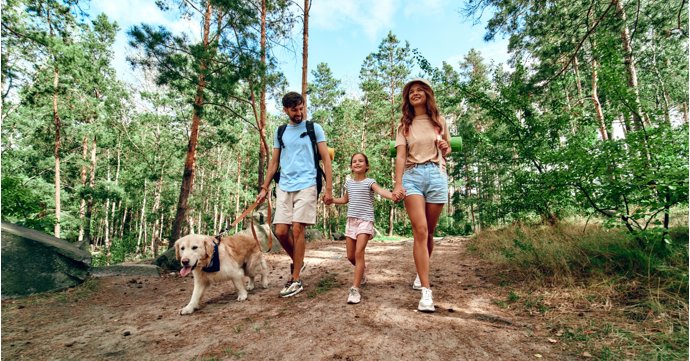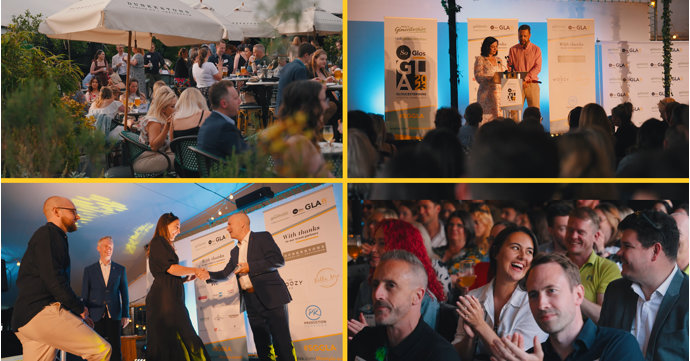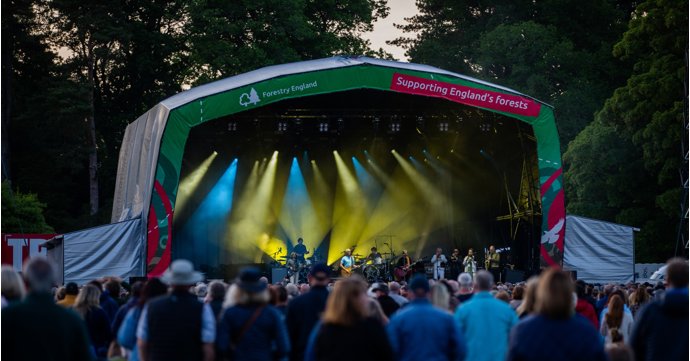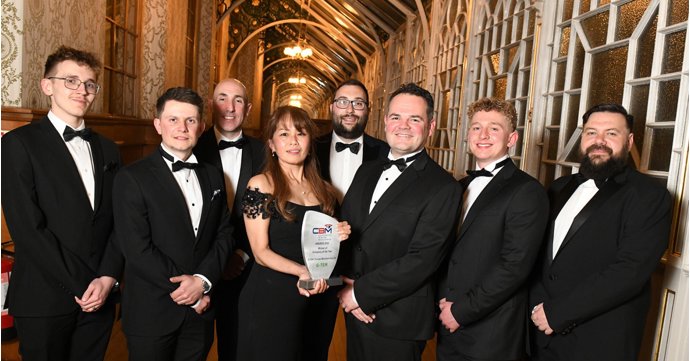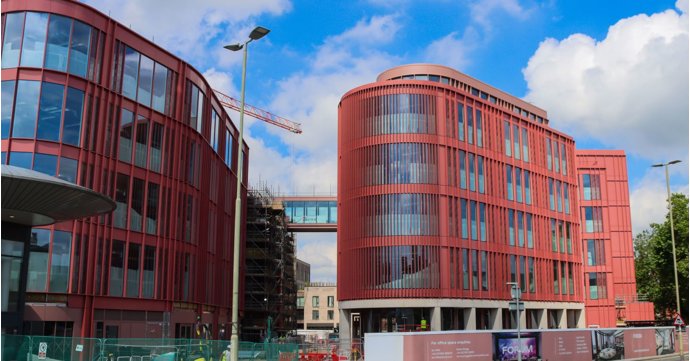After the pandemic forced a shift in thinking for businesses, venues and attractions all over the country, accessibility is more important than ever as the tourism industry begins to recover from the Covid-19 crisis.
SoGlos spoke to Visit Gloucestershire to get its advice on how businesses can make their buildings and experiences more accessible for disabled people in the county – and what support is out there to help them do it.
About the expert – Steve Gardner-Collins from Visit Gloucestershire
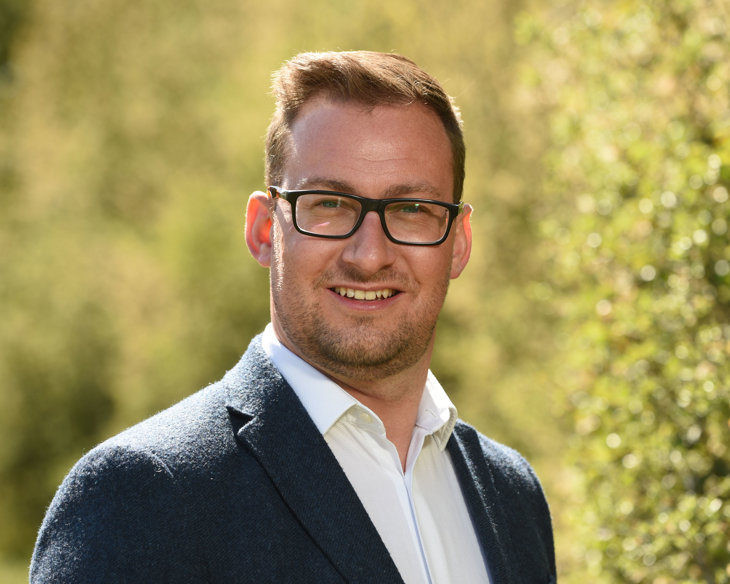
Director of Visit Gloucestershire, Steve Gardner-Collins, has a vision to create a responsible and sustainable tourism industry for the county, as well as improving accessibility for all.
Providing a non-competitive platform for local tourism and visitor economy businesses, Visit Gloucestershire helps them to share experiences, find resources and work together for the greater good.
What does the term accessibility mean for businesses?
The term ‘accessibility’ refers to the quality of being able to be reached or entered; the quality of being easy to obtain or use; and the quality of being easily understood or appreciated. For businesses, particularly in the visitor economy, this means products and services that can be experienced by everyone.
How important is it for businesses to make themselves more accessible for disabled customers?
Extremely important – since the pandemic, emphasis on inclusion and access has been a focus for many public organisations and as such, many private sector businesses have or want to prioritise how inclusive and accessible their experience or venue is.
There has been a lot of work across the county in this area, both public and private sector organisations have developed solutions to accessibility and there continues to be an emphasis going forward.
Visit England – the sector lead on tourism – has developed a business hub with information provided on making your experience or business accessible. Not only is there the hub of information available, but Visit England has also launched guides, too. Its ambition is to support an accessible England.
What practical things can businesses do to be more accessible for wheelchair users and people with limited mobility?
This isn’t a one size fits all solution and whilst businesses can review their own settings and introduce solutions like ramps and lifts, the overall review is much deeper than the practical changes – we know all too well that individual needs can be hidden and consideration of what is true access is more complex.
Much can be gained from shared experience from local organisations who have already adopted measures to be more accessible and inclusive, such as Cotswold Farm Park, Cotswold Wildlife Park, Gloucester Cathedral, the Jet Age Museum, Tewkesbury Park and Tewkesbury Abbey.
There are also county-wide initiatives such as Accessible Gloucestershire. You can invite Christian Drewitt – a lifelong wheelchair user – to visit and assess your business. The audit will provide an outcome for further consideration and will allow businesses to further develop and adopt ongoing necessary changes.
What about businesses operating from heritage or listed buildings? What changes can they make to improve accessibility? Is there any support out there to help them do this within the restrictions of being Grade I or II listed?
This is a more challenging subject and process. Gloucestershire has plenty of heritage and listed buildings, its often due to the age of properties or the design that pose a problem to seeing significant changes across the county.
But there is support from your local district council. You can enquire, have an assessment, submit your proposed changes and together, work on a plan that retains the ‘listed’ status, whilst making the changes needed to make your business more accessible.
What can businesses do to be more accessible for people who are d/Deaf or hard of hearing?
There are some pointers to make your business Deaf friendly: you can make staff Deaf Aware by training in sign language, speaking clearly and making eye contact. Adopt Video Relay Interpreting (VRI /VRS) and put in place BSL Access Points with Signcodes.
How can businesses become more accessible for blind or partially sighted customers?
Solutions for blind customers presents a wider and more complex call to action. Narrow corridors and staircases, obstacles, websites, signage and flyers are among some of the considerations that businesses need a solution on – often structurally impossible, particularly for heritage sites or listed properties.
But we must overcome some of these barriers by training staff; bringing in website developers who can support with blind friendly websites; using Braille on flyers, posters and signage – these are all possible with services available in Gloucestershire.
Many attractions, such as theatres, are starting to offer calm sessions for people with learning disabilities or additional sensory needs – is this something all attractions can and should do?
This is where shared experience and collaboration is needed. It is obvious that there is a gap in the offering for calm sessions and experiences for additional sensory needs. There are great examples of businesses offering sessions and experiences – from cinemas, theatres and museums to farm parks – and having researched this subject, whilst I can see there is a huge gap for the sector to work on, efforts are being made. But we still have a long way to go.
Lots of attractions offer free tickets for carers – again, is this something all tourism businesses can and should be doing?
Absolutely, if a visitor requires assistance during their visit and they bring support with them, carers should definitely be given a free ticket. Not providing this solution creates yet another barrier we need to overcome in the understanding of individual needs.
How can businesses support customers with hidden disabilities – for example Crohns disease or mental health needs? How effective are solutions such as adopting the Hidden Disabilities sunflower lanyards?
This is a category where my own experience helps – and for everyone who has a hidden disability, the sunflower lanyards in particular are a useful and friendly way to show or tell someone you have a hidden need.
However, it would be better to work on a solution where regardless of what you can and can’t see, facilities and services are accessible and inclusive.
It can be difficult to find out whether a venue is accessible – what can tourism businesses do to shout about their accessibility?
A great way to showcase your offering with visitors is to share your news on social media with things like short videos or photos of what you are doing. Social communication alongside your website is a great tool and social media is generally accessible to all. You could also reach out to charities who specialise in different areas and share your news, so they can inform their network.
Some examples of local businesses talking about access on their websites in really helpful ways are Cotswold Farm Park, Cotswold National Landscape, Cotswold Wildlife Park, Gloucester Cathedral, the Jet Age Museum, Tewkesbury Abbey and Tewkesbury Park.
Destination marketing organisations including Visit Cheltenham, Visit Gloucester and Visit Dean Wye have also put together useful information for visitors on their websites.
What advice can you give hospitality and tourism businesses to help them provide employment opportunities for disabled people?
An inclusive workplace is something businesses should strive to achieve, providing equal opportunity employment to everyone is certainly another focus for businesses in the tourism and hospitality sector. Much work is needed due the technicalities of positions available and the hours employees are expected to work, but generally, no job role should exclude someone.
Reviewing job descriptions, workplace environments, health and safety and other elements of the employment structure is a big part of being able to ask yourself, are we an equal opportunities employer? If the answer is no, what can we do to become one?
There are services available to businesses in the county, too – you can reach out to schemes like the Gem Project or YourCircle.
What needs to be done to improve accessibility for disabled people across Gloucestershire?
Having had the opportunity to review access and inclusion in Gloucestershire and work on the county tourism recovery strategy during 2021, there is plenty of development for businesses to take further steps on improving in this area, whether for a visitor or a potential employee. We have an opportunity to collaborate and share experiences to build a better future for people in Gloucestershire.
With time and money, during recovery and beyond, investment in improvements for access and inclusion should be front and centre of experiences – and to truly feel confident in this offering, like our net zero carbon ambitions, access and inclusion deserves the same emphasis.


